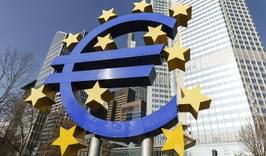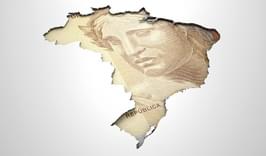Latest articles
Showing 1701-1710 of 2145 results.
Gazprom Neft Looks at Various Options to Raise Debt
Olga Kirichenko heads Gazprom Neft’s debt team and is responsible for managing the group’s entire debt portfolio, currently amounting to almost $11bn. Her team also provides support to, and supervises the debt portfolio management of joint ventures. The scope of Olga’s responsibilities covers the full range of corporate debt- financing instruments with maturities exceeding one year, including all…
24 Jun 2016
CASE STUDY: Etihad Group bond accelerates carrier growth
Etihad Aviation Group, which operates through a number of wholly-owned subsidiaries, has been able to successfully close two deals in quick succession, the latest being a US$500mn RegS bond. The company has accelerated its network growth to acquire the largest route network of any Middle Eastern carrier.
24 Jun 2016
Underperformance on the rise in China
The rising number of non-performing loans (NPLs) across the Chinese banking sector is linked to the worsening performance of entities, state-owned or otherwise, within the corporate sector. Although China’s four largest lenders have a significant number of NPLs, the government is unlikely to let these entities fail.
23 Jun 2016
Could lending restart in Zimbabwe?
Zimbabwe could soon reach an agreement to repay arrears owed to foreign institutions. Although the move could kick-start lending in the country, political changes will likely be a key factor for foreign FIs as they mull any shift in their operations.
23 Jun 2016
Central Banks: How Low Can You Go?
Denmark, Sweden, the Eurozone, Switzerland and Japan. The Central Banks of these countries, listed in chronological order, are the pioneers of negative interest rates. Under conventional monetary policy, banks earn income (interest) from cash reserves parked at the Central Bank. Under negative interest rates, banks are penalized and charged a fee for holding cash.
23 Jun 2016
Naira drop hits investments and lending with mixed results
The relaxation in Nigeria’s FX policy has led to a significant devaluation of the naira. Investment will still likely be slow on the local currency side, but foreign currency investment could soon rise. Nigeria’s banking sector will likely suffer in the short term from the naira’s devaluation, but could see a pickup in the long term through dollar inflows.
22 Jun 2016
When yuan met yuan: potential Chinese bank rules could prompt FX convergence
The People’s Bank of China’s decision to consider allowing local onshore banks to trade in China’s offshore market could lead to a convergence between the two, which would aid in the internationalisation of the renminbi and also assist in the development of the country’s bond markets.
22 Jun 2016
Not everything that falls goes up
It is natural for a country’s investment cycle to be more volatile than the GDP cycle, since investment decisions are more affected by the overall economic picture than by household consumption or government spending, which are more stable.
22 Jun 2016
Leverage weighing on some Brazilian corporates more than others
Brazilian companies are facing rising debt leverage ratios due to a volatile currency and low economic growth across the country. Although the telecoms company Oi has filed for bankruptcy, from which it could struggle to return, other telecoms investments remain positive, much more so than in the country’s aviation sector, where Gol is also struggling to refinance its debt.
21 Jun 2016
European currencies stable despite Brexit woes
Although a Brexit vote will affect the global markets, the CEE region and in particularly the UK’s larger trading partners within the region such as Poland will be most heavily impacted. However, although concerns over Brexit have caused fluctuations within these markets’ currencies, they have remained relatively resilient over the course of the last month.
21 Jun 2016









